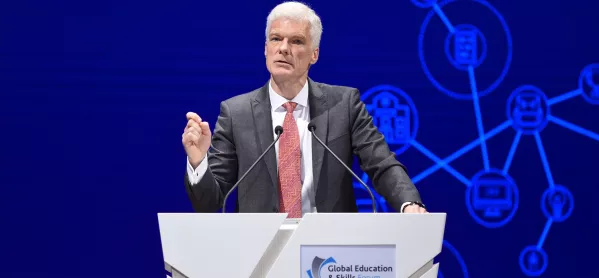Children should be taught in schools how to recognise “fake news”, a leading international education expert has said.
Andreas Schleicher, the OECD’s director of education and skills, said schools needed to teach pupils how to think critically and analyse what they read on social media and news sites.
He also said social media creates an “echo-chamber” in which users only hear from viewpoints similar to their own, and argued that schools have a role to play in making sure that young people have a chance to debate different views and opinions.
The OECD plans to test “global competencies” in the next Pisa round, the results of which will be published in 2019.
The competencies which it will test include young people’s attitudes to global issues and different cultures, their analytical and critical skills and abilities to interact with others.
Mr Schleicher said that whereas in the past “when you needed information, you went to an encyclopaedia”, today, anyone using social media or even news sites has to be able to assess, evaluate and reflect on the information they are given.
“Distinguishing what is true from what is not true is a critical skill today,” he said.
“Exposing fake news, even being aware that there is something like fake news, that there is something that is written that is not necessarily true, that you have to question, think critically. That is veryimportant.
“This is something that we believe schools can do something about.”
He also suggested that social media can reinforce one single viewpoint.
“Social media is designed to create an echo chamber. We are likely to talk with people who are like us. Who think similarly to us.”
On the next Pisa test, he said: “This assessment is about the capacity of young people to see the world through different perspectives, appreciate
different ideas, be open to different cultures, which is an increasingly important dimension in a more interconnected world - both economically and socially.”
Mr Schleicher’s comments were made ahead of the Global Education and Skills Forum, which is taking place this weekend in Dubai.
At the forum a new initiative was launched so that children across the world can test themselves on their ability and command of digital media in order to help keep them safe online.
It’s hoped the DQ programme, which measures young people’s “digital intelligence quotient” [DQ], will help protect young people against fake news and other online dangers such as radicalisation, grooming and cyber bullying.
The free test ‘scores’ children against a range of criteria - such as sharing personal data, meeting online strangers, online sexual behaviours, exposure to violent content, cyberbullying and game addiction - with the average DQ score for each set at 100.




